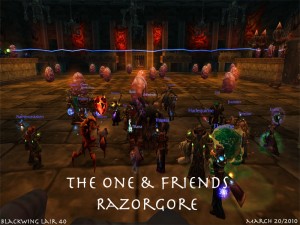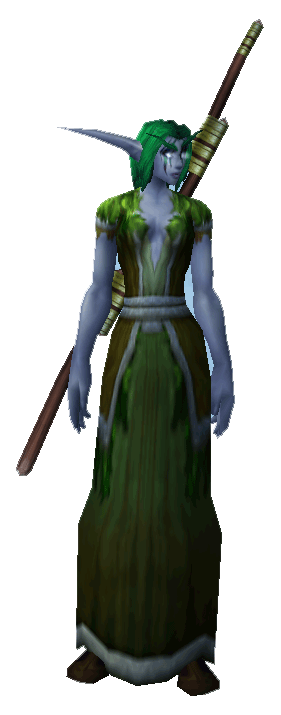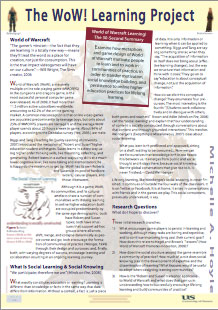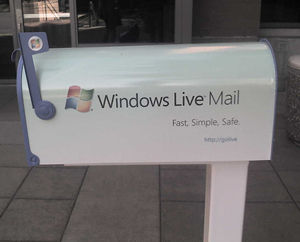
The One and Friends at the start of Razorgore encounter in Blackwing Lair in March of 2010
I’m now in week two of my first survey into learning, communities of practice, and World of Warcraft in support of my doctorate. The first part of the survey is collecting some in-game demographic details, such as how long people have played, what their first character was, favourite professions, etc. The meat of the survey, however, is a short answer question about why people play World of Warcraft.
I am still looking for additional responses and the survey is scheduled to close at the end of this weekend (April 18th). If you play World of Warcraft or know other players, I would be grateful if you could encourage them to visit the survey information page and participate. On completion, participants will be given a code to enter a draw for three Blizzard store pets as prizes.
Tweet, ask in guild, ask at university, or poke your workmates to pass the word along. Just remember that it’s only open to those 18 years or older as I’m interested in examining adults and learning and there are restrictions on participation in things by those younger than 18.
Thanks!












